


NOK information
About the Norwegian Krone (NOK)
What Is the Norwegian Krone (NOK)?
The Norwegian Krone (NOK), symbolized as "kr" and often abbreviated as NKr, is the official currency of Norway, including its overseas territories and dependencies of Svalbard, Bouvet Island, Queen Maud Land, and Peter I Island. The term "Krone" translates to "crown" in English. It is subdivided into 100 øre, although the øre ceased to exist in physical form in 2012 and now exists only electronically.
The Norwegian Krone (NOK) is issued by Norges Bank, which is the central bank of Norway. Norges Bank is responsible for the production and distribution of the country's currency and also plays a key role in determining and implementing monetary policy in Norway. This includes managing the country's foreign exchange reserves and ensuring financial stability. The bank's decisions and policies directly influence the value and stability of the Norwegian Krone.
What Is the History of NOK?
The Krone was introduced in 1875, replacing the Norwegian speciedaler at a rate of 4 Krone = 1 speciedaler, as Norway joined the Scandinavian Monetary Union. This union, which also included Denmark and Sweden, was based on a gold standard, with 2,480 Krone equaling 1 kilogram of pure gold. The union dissolved in 1914, but the Krone remained Norway's currency. During World War II, the Krone was pegged to the Reichsmark, and post-war, it was pegged to the British pound and later the U.S. dollar. In 1992, Norway shifted to a floating exchange rate due to heavy speculation against the Krone.
Notes and Coins of NOK
Norwegians use both coins and banknotes for transactions. Coins come in denominations of 1, 5, 10, and 20 kroner, while banknotes are available in 50, 100, 200, 500, and 1,000 kroner. The banknotes feature images of prominent Norwegians and are known for their unique and modern designs, celebrating Norway’s maritime history and culture.
Exchange Rate and Economic Influence
The value of the Krone is significantly influenced by changes in oil prices and interest rates, reflecting Norway's status as a major oil exporter. The Krone’s exchange rate against other currencies, like the USD and Euro, varies considerably, often correlating with global oil market trends. For instance, during the oil crisis of 2015, the Krone fell 20% against the dollar.
Norway is moving towards becoming a cashless society, with a high level of digitalization in financial transactions. Payment apps like Vipps are popular, and the use of cash is declining, although it is still accepted, especially among older generations and in smaller retail shops.
Why Doesn’t Norway Use the Euro?
Norway does not use the euro primarily because it is not a member of the European Union (EU). As a member of the European Economic Area (EEA), Norway enjoys access to the EU's single market without the obligations of EU membership, including adopting the euro. This arrangement allows Norway to maintain economic and monetary sovereignty, enabling it to tailor its monetary policy to its unique economic conditions, especially important given its significant oil and gas revenues. Additionally, there is considerable public and political support in Norway for maintaining the Norwegian Krone (NOK), as evidenced by the results of referendums in 1972 and 1994, where Norwegian voters opted against joining the EU. The stability and strength of Norway's economy and its currency further reinforce the decision to retain the Krone instead of adopting the euro.
Is NOK a Stable Currency?
The Norwegian Krone is generally considered a stable currency, largely due to Norway's robust economy, which is underpinned by significant revenues from its oil and gas industries. As a petroleum-based currency, the NOK's value can be influenced by fluctuations in oil prices, but Norway's prudent fiscal management, including the establishment of the Government Pension Fund Global (often referred to as the Oil Fund), helps mitigate these effects. This fund invests surplus revenues from the petroleum sector in international financial markets, providing a buffer against economic shocks. Additionally, Norway's low debt levels, strong sovereign credit ratings, and effective monetary policies by Norges Bank (the country's central bank) contribute to the Krone’s overall stability.
PLQ to NOK conversion rate trend

Conversion rate comparison of various exchanges
| Exchange | Price | Maker / Taker Fee | Tradable |
|---|---|---|---|
Bitget | kr0.07794 | 0.0200% / 0.0320% |
How to buy Planq



Buy PLQ (or USDT) for NOK (Norwegian Krone) offers
| Merchants (trades/completion rate) | Price | Amount/limit Low to high | Payment methods | Zero fees Action |
|---|
Sell PLQ (or USDT) for NOK (Norwegian Krone) offers
| Merchants (trades/completion rate) | Price | Amount/limit High to low | Payment methods | Zero fees Action |
|---|
What factors influence the conversion rate of Planq to Norwegian Krone?
Planq to Norwegian Krone is falling this week.Conversion tables
The exchange rate of Planq is decreasing.PLQ to NOK
NOK to PLQ
Today vs. 24 hours ago
| Amount | 23:21 today | 24 hours ago | 24h change |
|---|---|---|---|
| 0.5 PLQ | $0.003520 | $0.003437 | +2.39% |
| 1 PLQ | $0.007039 | $0.006875 | +2.39% |
| 5 PLQ | $0.03520 | $0.03437 | +2.39% |
| 10 PLQ | $0.07039 | $0.06875 | +2.39% |
| 50 PLQ | $0.3520 | $0.3437 | +2.39% |
| 100 PLQ | $0.7039 | $0.6875 | +2.39% |
| 500 PLQ | $3.52 | $3.44 | +2.39% |
| 1000 PLQ | $7.04 | $6.87 | +2.39% |
Today vs. 1 month ago
| Amount | 23:21 today | 1 month ago | 1M change |
|---|---|---|---|
| 0.5 PLQ | $0.003520 | $0.003891 | -9.54% |
| 1 PLQ | $0.007039 | $0.007781 | -9.54% |
| 5 PLQ | $0.03520 | $0.03891 | -9.54% |
| 10 PLQ | $0.07039 | $0.07781 | -9.54% |
| 50 PLQ | $0.3520 | $0.3891 | -9.54% |
| 100 PLQ | $0.7039 | $0.7781 | -9.54% |
| 500 PLQ | $3.52 | $3.89 | -9.54% |
| 1000 PLQ | $7.04 | $7.78 | -9.54% |
Today vs. 1 year ago
| Amount | 23:21 today | 1 year ago | 1Y change |
|---|---|---|---|
| 0.5 PLQ | $0.003520 | $0.02690 | -86.92% |
| 1 PLQ | $0.007039 | $0.05380 | -86.92% |
| 5 PLQ | $0.03520 | $0.2690 | -86.92% |
| 10 PLQ | $0.07039 | $0.5380 | -86.92% |
| 50 PLQ | $0.3520 | $2.69 | -86.92% |
| 100 PLQ | $0.7039 | $5.38 | -86.92% |
| 500 PLQ | $3.52 | $26.9 | -86.92% |
| 1000 PLQ | $7.04 | $53.8 | -86.92% |
Planq price prediction
What will the price of PLQ be in 2026?
What will the price of PLQ be in 2031?
Other crypto price predictions
 Bitcoin(BTC)Price predictions
Bitcoin(BTC)Price predictions Ethereum(ETH)Price predictions
Ethereum(ETH)Price predictions Celestia(TIA)Price predictions
Celestia(TIA)Price predictions Solana(SOL)Price predictions
Solana(SOL)Price predictions Worldcoin(WLD)Price predictions
Worldcoin(WLD)Price predictions Bittensor(TAO)Price predictions
Bittensor(TAO)Price predictions Dogecoin(DOGE)Price predictions
Dogecoin(DOGE)Price predictions PepeCoin(PEPECOIN)Price predictions
PepeCoin(PEPECOIN)Price predictions Pandora(PANDORA)Price predictions
Pandora(PANDORA)Price predictions ORDI(ORDI)Price predictions
ORDI(ORDI)Price predictionsBitget Earn
Purchase other cryptocurrencies with similar market cap
Popular Planq conversions
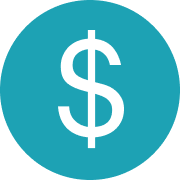

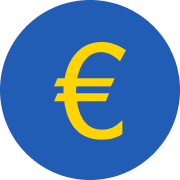
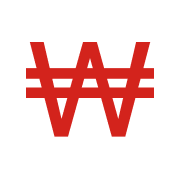

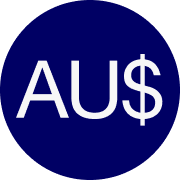
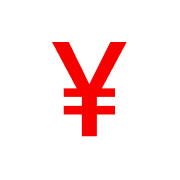
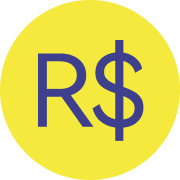
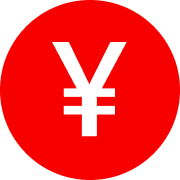
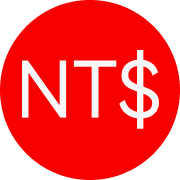
Popular cryptocurrencies to NOK































































